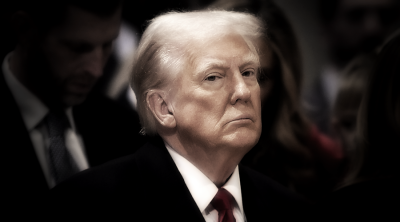
The intricate dance of unfolding geopolitical events and intricate international relations often reveals hidden harmonies and Malaysia’s rhythm might resonate better than we think with this global symphony.
In its earlier publications titled “Navigating the BRICS storm: separating signal from noise” and “Joining BRICS+: Anwar’s pragmatic and strategic choice for Malaysia”, EMIR Research has deconstructed the arguments presented by those who express fear about collaborating with BRICS countries.
A close analysis reveals that these arguments essentially distil down to a single significant belief or narrative—one that curiously enough sounds more like a threat—suggesting that any country’s desire to engage with BRICS nations must necessarily “negatively impact its ties with the West”.
Meanwhile, BRICS (now in the BRICS+ form), through their very existence, demonstrate to the world a simple truth: effective cooperation for mutual growth and development is totally achievable even in the presence of significant political and ideological differences, varying goals and strategies, noticeable economic asymmetries, heterogeneous geopolitical tendencies, diverse cultures, and distinct governance systems—all these factors ultimately fall under the umbrella of national sovereignty!
It’s both amusing and revealing how BRICS critics seem unable to make up their minds about the notable diversity within the group.
This diversity starkly encompasses vastly different geopolitical alignment tendencies, yet critics twist this fact to suit their narratives.
On one hand, they ignore apparent geopolitical differences to present BRICS as a “cohesive geopolitical bloc”.,
But in the very next breath, they highlight these differences to suggest potential weaknesses within the group.
However, a discerning observer who also places his own nation’s interests (before anything else) might absolutely naturally ask: Why can’t my sovereign country be like India, South Africa, or Brazil—the founding members of BRICS who aren’t perceived as anti-West? Or consider the newly joined members like Egypt or the UAE, who also clearly engage in a delicate balancing act between both sides
It is equally amusing how some political blockheads appear to miss another important point in their “analysis”.
Given the current global trend toward full-speed diversification of over-reliance on Western currencies and technologies—both of which are routinely wielded as economic weapons—the question has already shifted from “would not working with BRICS countries negatively impact the relationship with the West?” to “would not the West, by habitually using their investments, currencies, technologies, and other normal economic relationships as economic weapons/form of pressure, unilaterally sever ties even with that handful of global South-East countries that remain genuinely open to productive cooperation with them for mutual economic benefits?!”
It’s eerily akin to still trying to shamelessly convince everyone that SWN (Single Worldwide Network) for 5G is a “beneficial innovation”, even though the rest of the world has already discarded it as a complete failure model—even for previous-generation networks.
Yet, some quarters stubbornly cling to the idea of going solo with SWN, while the rest of the nations have wisely moved on, embracing a wide diversification of network equipment providers and mobile network operators (MNOs) in their national infrastructures as a pure and very clear matter of economic efficiency and national sovereignty!
Clearly, the current geopolitical mess acts as a revealing x-ray, illuminating both the truly sovereign leaders (genuinely working for their nation and people) and those whose sovereignty might be a bit wobblier/compromised.
This is where it is really high time for the general public to finally mature, too—become more conceptually powerful and discerning in their political support.
After all, every nation has a government that exercises power as a result of all the past thoughtful and thoughtless activity and inactivity of this nation as a collective entity.
It is indeed worth reiterating this idea. Given the Global West’s current precarious situation, it would be wise to use any chance to demonstrate that it can be a reliable partner—one whose relationships with other nations are mutually respectful, not oppressive/conditional upon “geopolitical alignment”, and do not curtail national sovereignty!
By doing so, the global community may begin to perceive the West differently, and there will likely be a renewed influx of goodwill directed its way.
When it comes to BRICS, based on facts and pure logic (refer to “Navigating the BRICS storm: separating signal from noise” for detailed analysis), it is absolutely clear that it is essentially a dialogue forum for mutually accelerated economic growth and development with no conditionalities of “geopolitical alignment”.
As its official vision, mission, action items as well as concrete economic steps/solutions document thus far, the group’s very existence is not to “counterbalance” but to complement Western efforts toward development goals by giving very focused and tailored attention to the needs of developing economies, empowering them to participate more meaningfully in international economic affairs!
After all, it is simply unwise, to say least, not to be part of a group where decisions made by consensus can potentially implicate your national destiny too.
This is on top of the very obvious fact that further geographical diversification of Malaysia’s trade would greatly benefit from deepening ties with BRICS+ economies, including meaningful engagement with the regional blocs—such as MERCOSUR and the African Continental Free Trade Area (AfCFTA)—whose members are not currently covered by Malaysia’s existing Free Trade Agreement (FTA) network.
As emphasised earlier, by joining BRICS+, Malaysia aims to deepen economic cooperation with emerging markets, enhancing trade, investment, and technological exchange (“Joining BRICS+: Anwar’s pragmatic and strategic choice for Malaysia”).
This engagement complements Malaysia’s existing relationships with Western nations and institutions, rather than replacing them.
Therefore, Malaysia’s economic interest and desire to fast-track forging mutually beneficial cooperation with BRICS+ countries is well understood.
At the same time, Malaysia itself appears to be a great fit for BRICS+, and the close attention given to Malaysia would be perfectly justified.
As BRICS, originally comprising five influential economies across three continents, has recently expanded its geographical reach to include the Middle East, the potential for further expansion into Southeast Asia—the ASEAN countries—emerges as the next logical step forward towards global governance.
As a vibrant Southeast Asian economy, Malaysia brings its unique strengths to the table, including its well-balanced diplomatic relations, robust export potential, diverse network of trade alliances, and abundant natural resources.
Also, even a non-sophisticated observer cannot help but notice the striking harmony between the BRICS vision/mission, as elucidated above, and the MADANI concept as a policy based on inclusivity and integrity in shaping the nation’s identity and empowering all the overlooked segments to participate meaningfully in economic prosperity.
These strengths make Malaysia a confident and capable partner for BRICS+, a coalition of major emerging economies that offers a robust platform for collaboration, trade, and shared development.
This partnership can bridge regions and promote further mutual growth and cooperation.
This is especially important when our immediate neighbour, Indonesia, appears to overlook such an opportunity.
Therefore, Malaysia is well-positioned in the sweet spot of this generous present and truly an opportune moment to assume leadership and fill the void on this side of the globe while also incredibly timely assuming the chairmanship of ASEAN in 2025.
By exemplifying the ‘prosper thy neighbour’ policy—being friends to all and enemies to none—we can play a pivotal role. After all, we are the founding fathers of ASEAN and proud signatories to ZOPFAN (Zone of Peace, Freedom, and Neutrality).
It would be truly inspiring to see Malaysia embrace its historical legacy and chart a course that balances diplomacy, peace, and prosperity—the world right now needs more bridges and fewer walls.
And, such a position should be not only applauded but emulated by other countries, particularly when the drums of World War III are beating faster and louder than ever.
Read also:
- Starmer’s ‘brick by brick’ only to be overwhelmed by BRICS+
- Charting a new course: Malaysia’s bid for BRICS and the quest for global economic balance
- Navigating the BRICS storm: separating signal from noise
- Joining BRICS+: Anwar’s pragmatic and strategic choice for Malaysia
(Dr. Rais Hussin is the Founder of EMIR Research, a think tank focused on strategic policy recommendations based on rigorous research.)
ADVERTISEMENT
ADVERTISEMENT





































